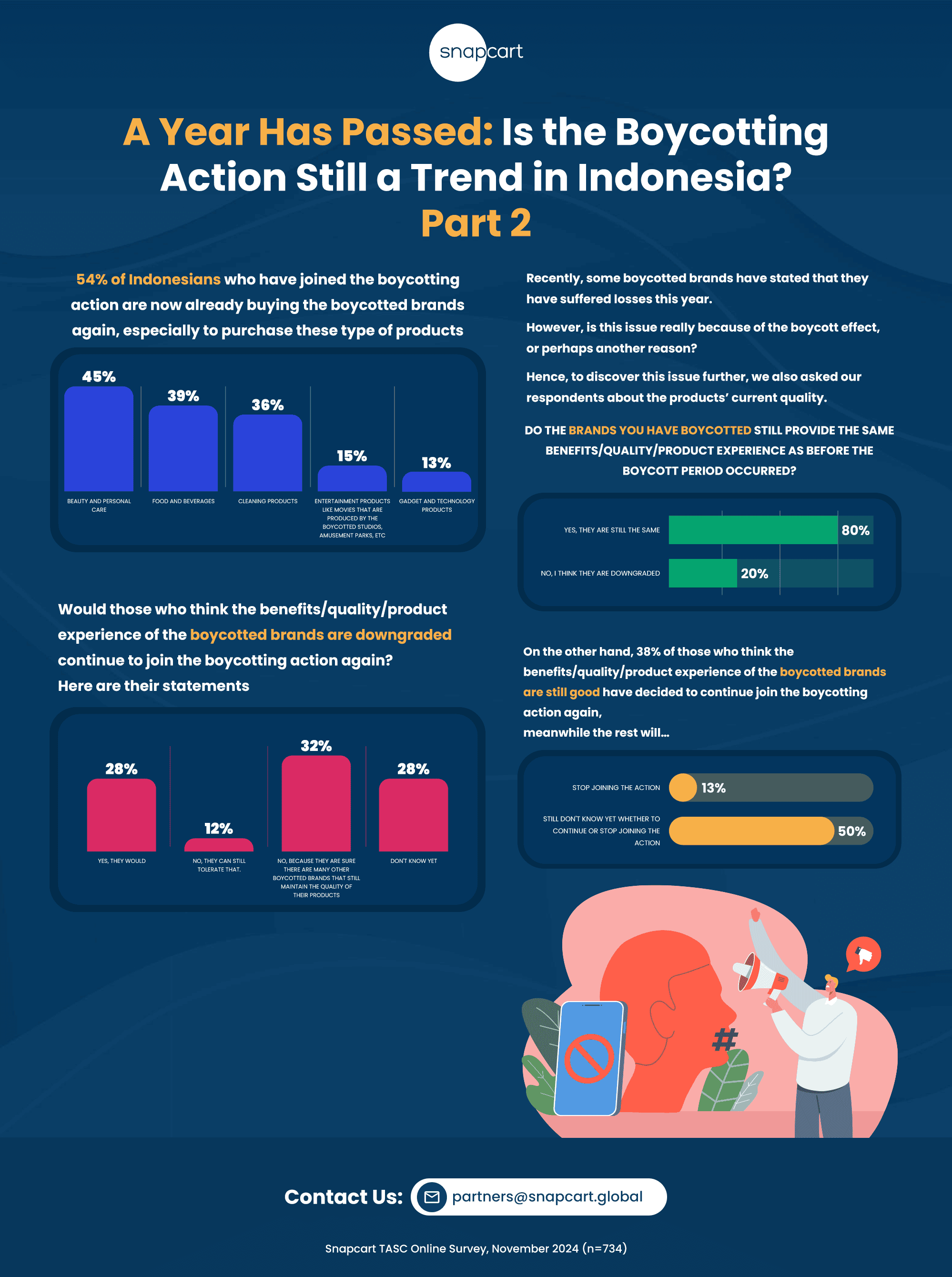In the past year, boycotting specific brands became a prominent trend among many people around the world, including Indonesians. However, as time passed, consumer behavior has shown notable changes. 54% of people who have joined this action said they have finally returned to use and/or consume the boycotted brands after several months or even only several days of joining this action [1].
In this article, we continue to highlight how public sentiment toward boycotting has evolved and whether the movement still holds the same influence or not.

According to the infographic above, people who returned to purchase the boycotted brands have stopped joining the action temporarily, or even permanently, mainly to purchase these top 5 type of boycotted products:
- Beauty and personal care: 45%
- Food and beverages: 39%
- Cleaning products: 36%
- Entertainment products: 15%
- Gadget and technology products: 13%
These findings suggest that practicality and product dependency may play a role in consumers’ decisions to purchase boycotted items again.
Quality and Benefits: A Deciding Factor
One of the key questions posed in the survey was whether the boycotted brands still provide the same quality, benefits, and product experience as before the boycott. And interestingly…
- 80% of respondents believe the quality has remained the same.
- 20% feel that the quality has deteriorated.
This indicates that while the boycott might have impacted brand reputation, it has not necessarily translated into noticeable product quality changes for most consumers.
Would Consumers Join the Boycott Again?
For those who perceive a decline in quality or benefits, opinions vary on whether they would rejoin the boycotting movement, that…
- 28% would participate again.
- 12% stated they wouldn’t, as they can still tolerate the quality despite any perceived issues.
- 32% expressed doubt, citing that the brands maintain good quality standards despite the boycott.
- The remaining 28% remain undecided.
However, how about those who think the quality of the boycotted brands remain good?
Among respondents who feel that boycotted brands have retained their quality, only 38% plan to continue boycotting the brands. The remaining consumers fall into two groups:
- 13% will stop participating in the boycott.
- 50% are undecided about whether to continue the boycott or abandon it.
At the end of the day, this study results shed light on the shifting dynamics of consumer attitudes toward boycotted brands in Indonesia. While the initial boycott action had strong momentum, factors like product quality, benefits, and everyday utility appear to influence the consumers’ decision to return to these brands.
As 2024 unfolds, it remains to be seen whether boycotts will sustain their impact or if consumer preferences will gradually override the action.
For more information, contact us at partners@snapcart.global.
Source:
[1] https://snapcart.global/a-year-has-passed-is-the-boycott-action-still-a-trend-in-indonesia/





